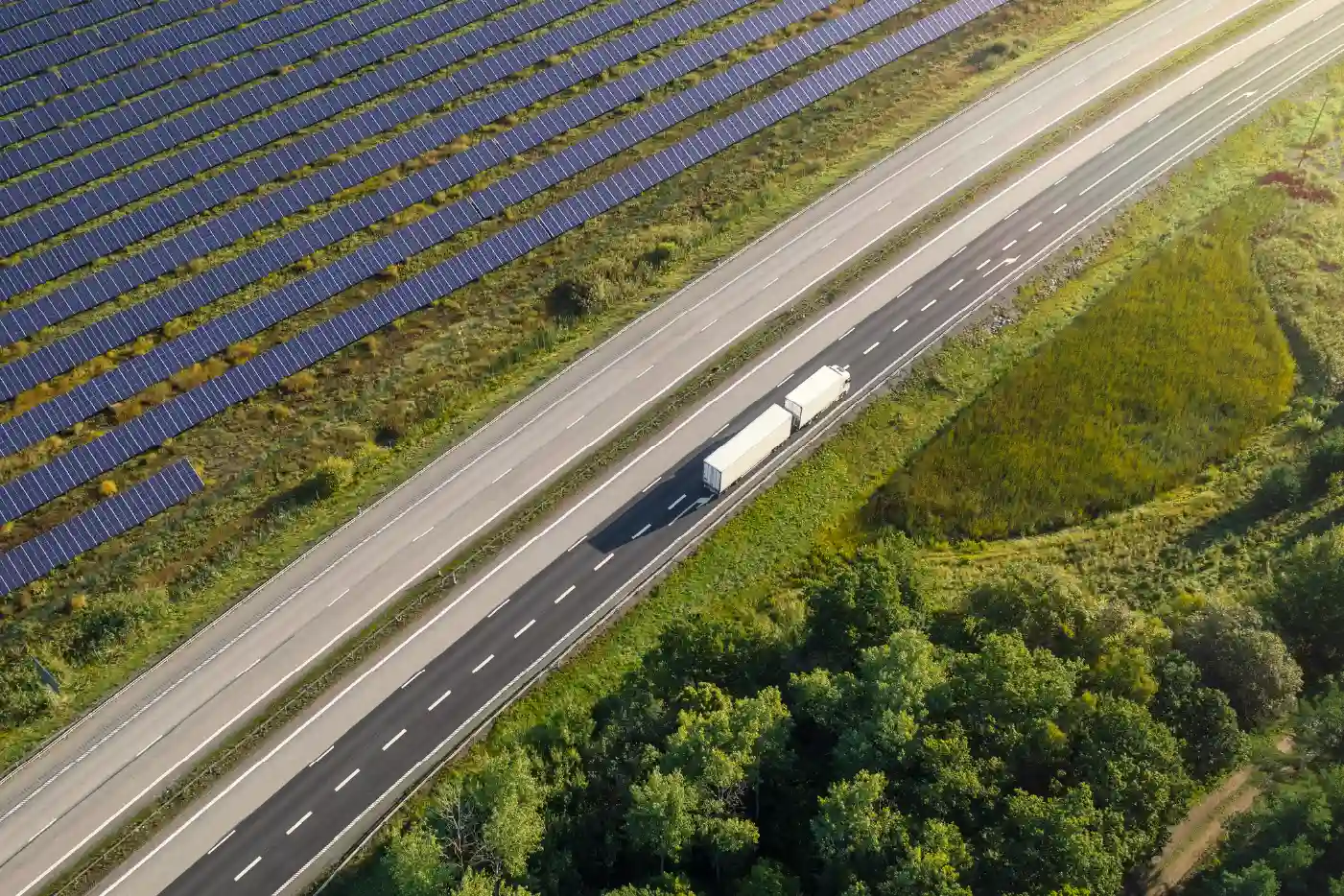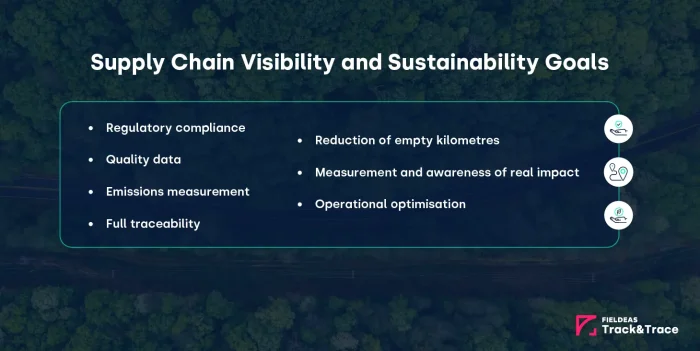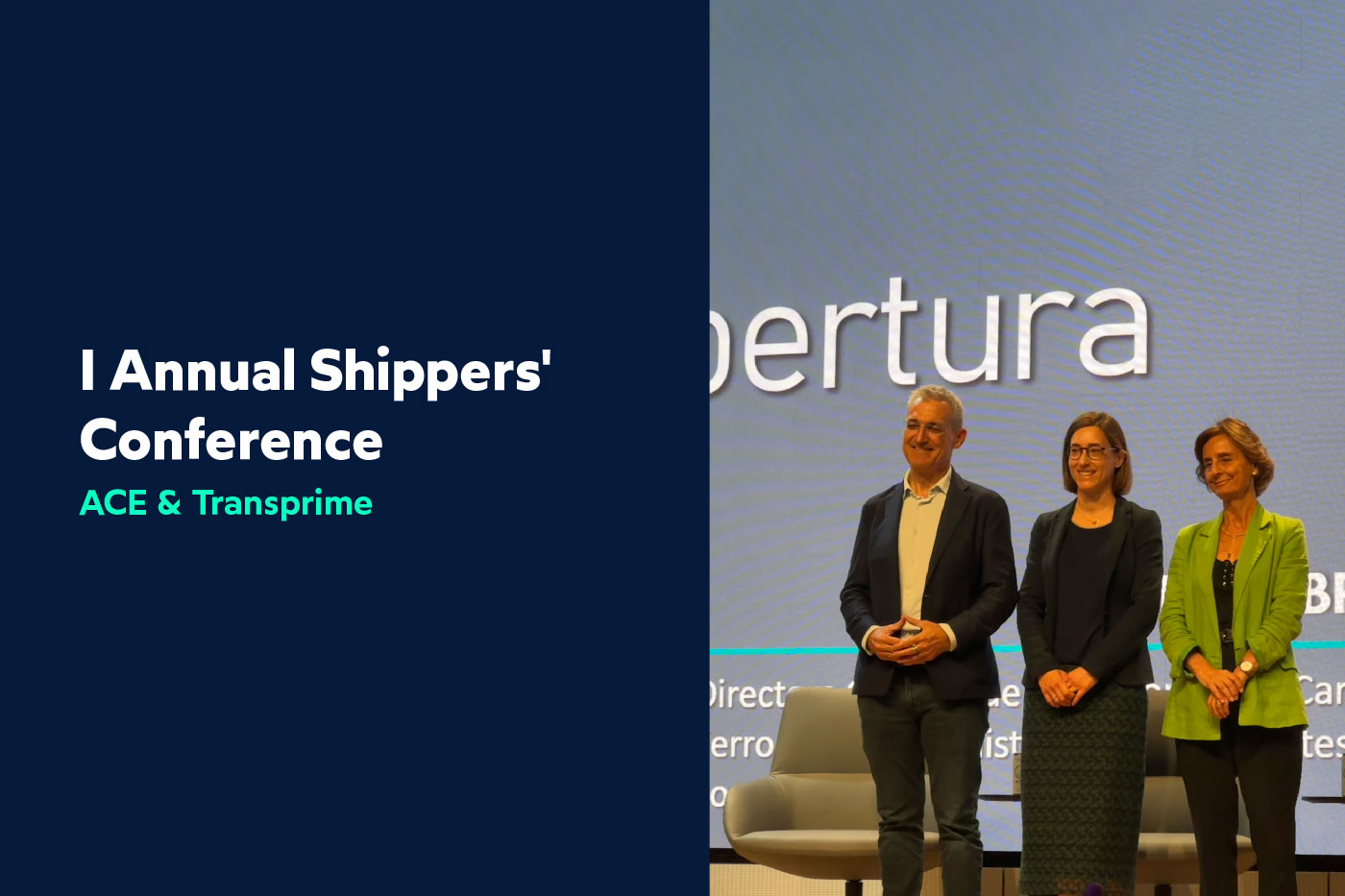Sustainability in transport and logistics: the new strategic axis driven by data


Sustainability in transport and logistics has become a strategic issue for companies in the sector.
It is not only a question of responding to increasingly intense regulatory pressure, but also of ensuring competitiveness in an environment where efficiency, traceability and emissions reduction are already decisive factors.
In this context, digitization and data quality emerge as the real accelerators of decarbonization, especially in a sector undergoing a regulatory avalanche and a profound technological transformation.
In recent years, road freight transport, which is responsible for 93% of energy consumption in the transport sector, has been immersed in an intense regulatory process.
Some of the most relevant regulations are:
All these regulations lead us to the same point: the need to obtain quality data in order to comply with regulatory requirements.
Thus, we can affirm that there will be no sustainability without data, and there will be no competitiveness without the ability to measure and report reliably.
Sustainability in transport and logistics is not only achieved through fleet renewal or the use of alternative fuels. In fact, electrification and the use of alternative fuels remain unfeasible for long distance and heavy transport.
Therefore, the first lever to decarbonize is not in vehicles, but in operational efficiency, and this can only be driven by data.
AECOC’s Sustainable Logistics Barometer highlights these data:
Despite this data, many SMEs do not have robust measurement systems in place. And without measurement, no improvement is possible. Just as without traceability, there is no certification or compliance. And without data, any sustainability claim runs the risk of being considered greenwashing.

All in all, digitalization has become the pillar of sustainability in transportation and logistics.
This is where a Supply Chain Visibility (SCV) platform, such as FIELDEAS Track and Trace, becomes essential to help companies achieve their sustainability goals. Why?
These types of platforms allow data to be collected from multiple sources and stakeholders without relying on manual processes. This guarantees:
In addition, the integration of FIELDEAS Track and Trace facilitates compliance with the Sustainable Mobility Act and improves readiness for Lean & Green certification.
The end-to-end visibility provided by a MCS allows you to reduce empty miles, improve planning, avoid inefficiencies and measure the real impact of any action.
In an environment where 68% of the sector considers clean technology investment costs to be the biggest barrier, according to AECOC, optimizing operations is the most immediate and profitable strategy.
One initiative that highlights the achievements of transport and logistics companies in sustainability is Lean & Green, Europe’s largest collaborative platform specifically aimed at reducing emissions associated with the supply chain.
However, the route to Lean & Green stars requires demonstrating verifiable reductions in emissions. This can only be achieved if companies:
A solution such as FIELDEAS Track and Trace helps to turn these four requirements into automatic and continuous processes, allowing the company to evolve from estimation to certainty, and from reaction to anticipation.
Moreover, inaction on sustainability carries risks:
The logistics sector is demonstrating capacity, innovation and willingness to change. Companies that integrate supply chain visibility solutions such as FIELDEAS Track and Trace will lead this transition: they will not only comply with regulations, but will turn decarbonization into a driver of efficiency, resilience and strategic advantage.


23 Apr 2024
How to reduce emissions from road transport

01 Aug 2024
Environmental benefits of improved supply chain visibility and traceability

27 Feb 2025
How to measure and reduce Scope 3 emissions with a SCV platform

28 May 2025
Disruptions in global supply chains: the value of collaboration and visibility.